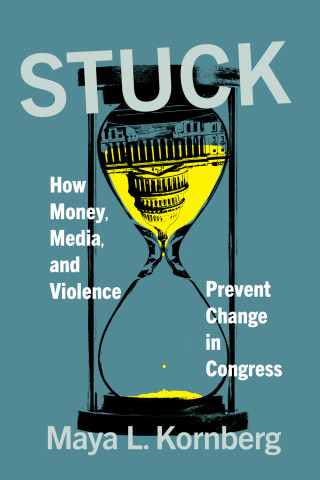
Reviews
This provides an American foreign policy expert's survey of security studies and new methods of analyzing and understanding international politics. Highly recommended for any college-level political science collection!
National Security through a Cockeyed Lens is an interesting read for anyone seeking to understand how seemingly poor decisions can be made at critical junctures.
National Security through a Cockeyed Lens serves as a seminal work, instructive for scholars and decision makers alike... Yetiv's volume could be one of the key books for presidents and their advisers to read before they begin making decisions...
The principles in this book deserve wide recognition. Yetiv places necessary focus on lapses in decision making that are important to acknowledge.
Steve Yetiv is an expert in American foreign policy, security studies, and interdisciplinary approaches toward international politics. He is the ideal person to write this particular book, which applies political psychology to the study of decision processes.
Anyone who has been involved with policy making and execution—whether as a senior decision maker or as a government or non-government expert advisor—has experienced many of the cognitive biases and the personal and organizational dynamics discussed in Steve Yetiv’s book. But no one that I know has so perceptively captured these issues in one concise, clearly laid out, and cogently argued volume. There are many times I wish I had had a book like this to wave around and point to, or quietly place in front of people to suggest they pause and think about their thinking, and I am sure that in the future I will use it as a reference.
How do leaders make decisions, and why do they often make such bad ones at critical times? In his fascinating new book, Steve Yetiv examines this critical question. Drawing on decades of psychological, historical, and political science research, Yetiv demonstrates how cognitive biases have undermined good decision making in key cases involving U.S. national security, often with very costly results. Yetiv’s analysis and recommendations deserve a wide hearing among policy makers, academics, and laypeople alike.
Book Details
Acknowledgments
Introduction: When Psychology Meets Decision Making
1. Afghanistan and Conflict: Intention and Threat Perception
2. President Reagan and Iran-Contra: Focus Feature
3. Radical Terrorism: A
Acknowledgments
Introduction: When Psychology Meets Decision Making
1. Afghanistan and Conflict: Intention and Threat Perception
2. President Reagan and Iran-Contra: Focus Feature
3. Radical Terrorism: A Cockeyed Lens
4. The 2003 Invasion of Iraq: A War of Overconfidence
5. U.S. Energy Policy: Short-Term Bias
Conclusion: Making Better Decisions
Glossary
Notes
Bibliography
Index





